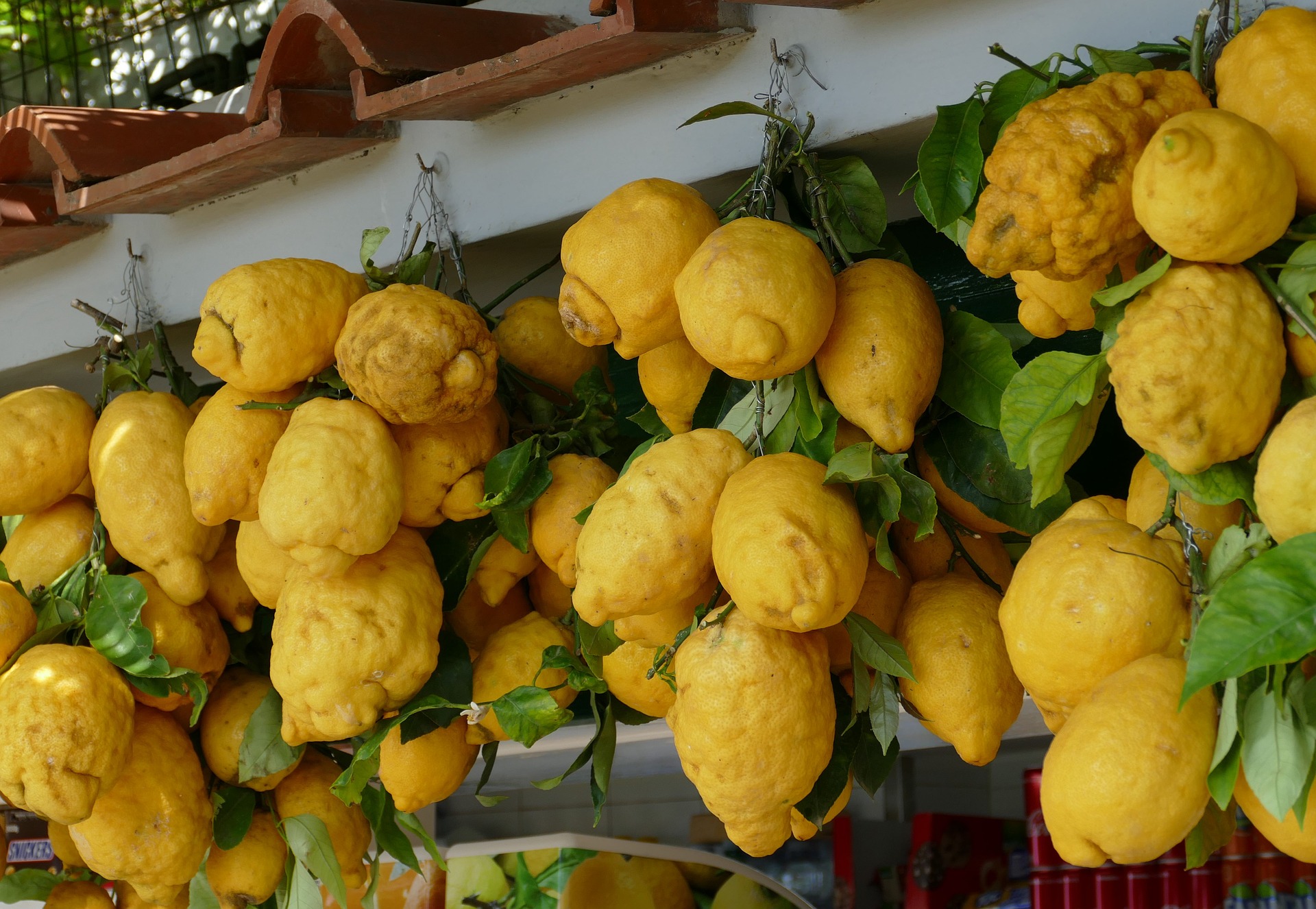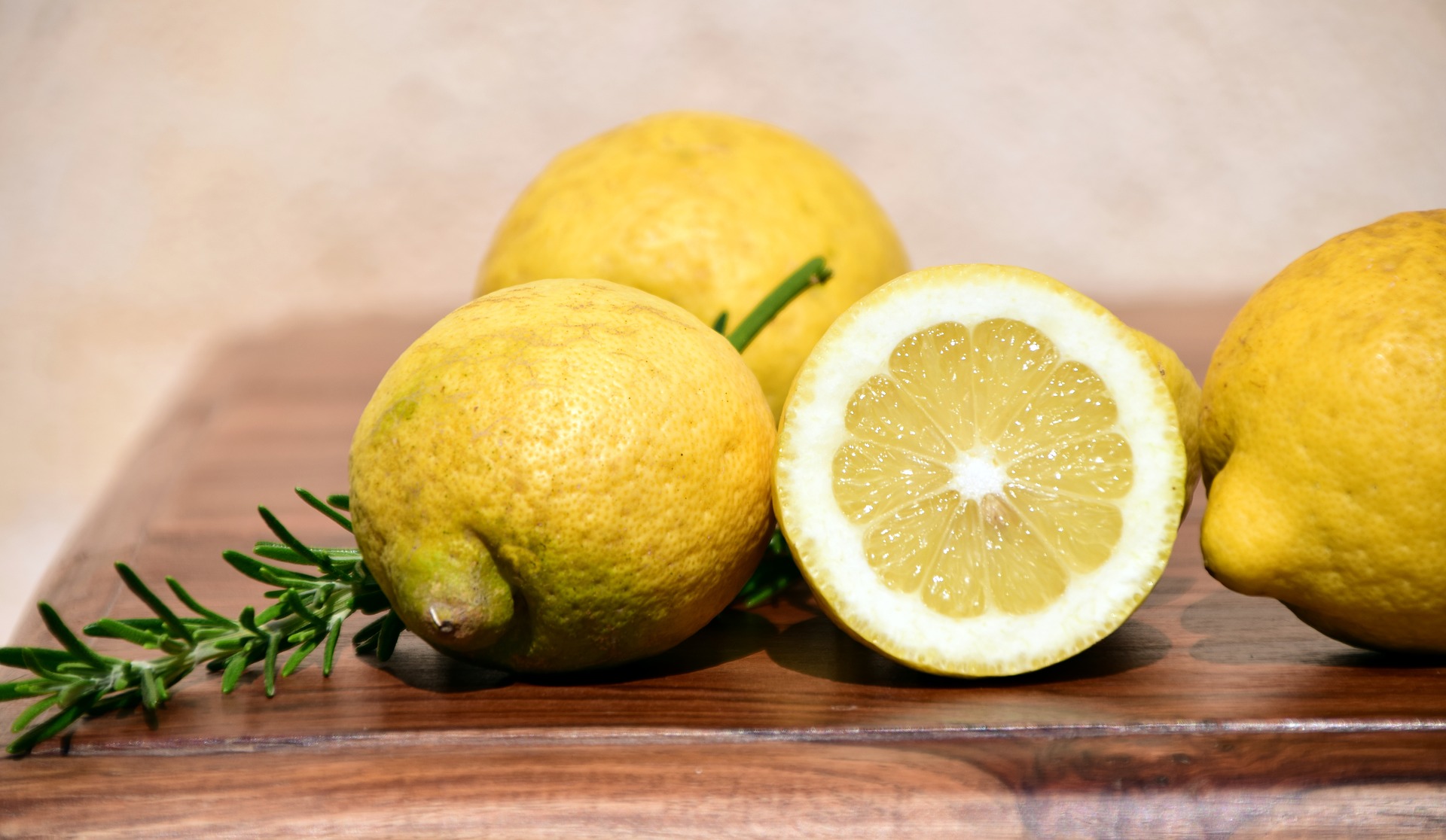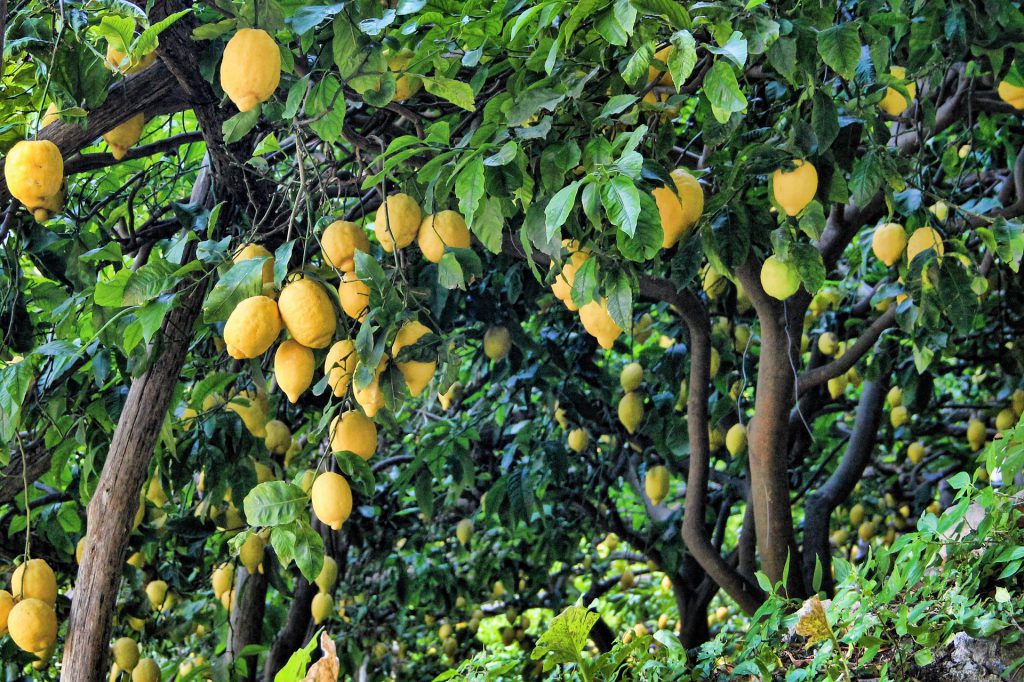Products
Origin of lemons in Italian Campina
The lemon fruit arrived apparently from Asia and was already cultivated in Roman times (as shown by the frescoes of Pompeii for example) in the Mediterranean basin and in this case in Sicily on the Sorrento Peninsula. It has developed in some areas thanks to the mild and sunny climate but also according to needs, especially in ports. Just think of the richness and importance of the Amalfi Maritime Republic. Lemons were the only fruits that could be kept for long periods of time, so they could be taken on board ships and the only rich elements of vitamin C that could be used to fight scurvy. In addition, they also became famous because they travelled all over the world and especially in America. Over the centuries, varieties have been selected to produce the varieties we know today.
In the land of lemon – Italian Campania
The Amalfi coast is the land of lemons (limone in Italian). Grown on terraces, lemon trees cover the mountainsides and produce particularly aromatic fruits. And it can be found everywhere, in the glass and on the plate! Symbols of the Mediterranean Sea, they were introduced into this region of southern Italy by the Normans more than a millennium ago. Since then, the “Limone Costa d’Amalfi” has become a protected geographical indication (PGI). A specialty cultivated by earthworks on the steep cliffs of the coast.
Lemons like no other
If all lemons are known for their medicinal virtues, Amalfi lemons have the particularity of being larger than the lemons found in shops (they are at least 80 gr). Their shape also differs; they are often slightly longer and their apex is more pointed. Their peel is also thicker, and it contains a rich and perfumed essential oil, whose flavour is clearly different from the so-called “classic” lemons, with a beautiful acidity. With a particularly juicy pulp and few seeds, they are perfect for making lemon pies, but also, for example, their own homemade Limoncello. Powerful antioxidant and very rich in vitamin C, it is attributed with many beneficial properties. Consumed sweet or salty, fresh or candied, in the form of zest or juice, Amalfi lemon is an integral part of local cuisine. A fruit that makes the country proud!


Organic lemons, respectful of their environment, and hand-picked
This is THE main characteristic of Amalfi lemons; they are rustic, so they are not treated before, during or after their cultivation. Their producers respect ancient farming methods, respectful of their environment, and pick them by hand directly from the lemon tree. All these reasons, combined with the incomparable flavours and virtues of Amalfi lemon, mean that you can eat everything in the fruit, without throwing anything away.



